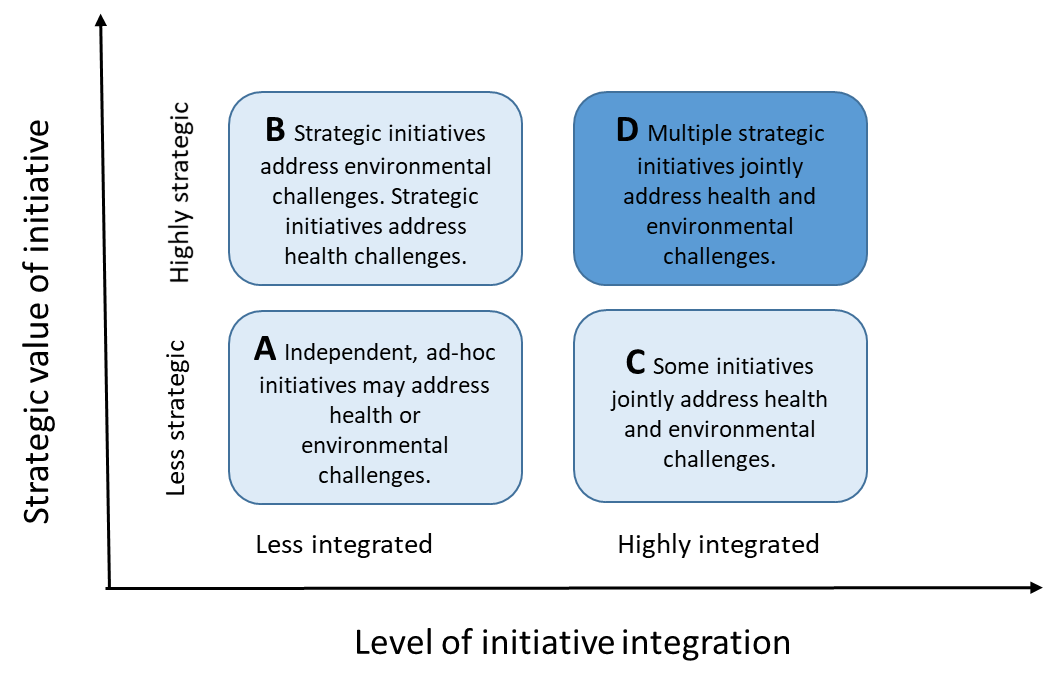Tim Lucas
(919) 613-8084
tdlucas@duke.edu
Contact: Tim Lucas, (919) 613-8084, tdlucas@duke.edu
DURHAM – When Deborah Gallagher and her students began working on a study for the UN Global Compact about business leadership for planetary health two years ago, she never dreamed she’d end up sharing the stage at one of the biggest climate events in recent history.
But that’s what happened yesterday, Sept. 23, when Gallagher presented her team’s findings to corporate and policy leaders at a high-level event in New York held in conjunction with the UN Secretary General’s Climate Action Summit.
A widely respected expert on environmental leadership and governance, Gallagher is professor of the practice of resource and environmental policy at Duke University’s Nicholas School of the Environment. She chairs the school’s Master of Environmental Management (MEM) program in Business & Environment.
In her presentation in New York, she summarized the key takeaways of a report her team produced as part of its two-year study for the UN Global Compact’s “Health is Everyone’s Business” initiative.
The report is based on research into the practices of 50 companies and in-depth interviews with executives at some of them. It includes case studies and an assessment tool to help businesses understand the strategic advantages of integrating health and environmental goals throughout their value chains.
“We’ve essentially created a roadmap that charts the different stages in the learning curve for becoming a leader in planetary health and identifies the types of leadership qualities and actions that are needed for a company to progress from one stage to the next,” Gallagher said.
Two core steps in the process, she said, are establishing a defined strategy for targeting environmental and health co-benefits throughout the organization’s operations, and developing integrated goals, policies, metrics, initiatives and products that help advance the strategy and provide long-term benefits to the organization and its stakeholders.
“Intentionality, ambitiousness, consistency, collaboration and accountability – these are the leadership qualities needed to move a company from a less-integrated approach to planetary health to one that is highly integrated,” Gallagher said.
Former students Vincent Gaulthier and Temis Coral, who both graduated from the Nicholas School with MEM degrees in May 2019, and 2nd year MEM student Samantha Burch conducted the research and co-authored the report with Gallagher. Gaulthier now works for the UN Global Compact as project manager of the “Health is Everyone’s Business” action platform.
Other members of the Duke team include Lydia Olander, director of the ecosystems services program at Duke’s Nicholas Institute for Environmental Policy Solutions, and 1st year MEM student Elise Harrigan, who will work with Gallagher and Burch on the next phase of the research, which will be conducted in collaboration with the World Health Organization and the UN Foundation.
The team received support from the Bridge Collaborative, a global change partnership founded in 2016 by the Nature Conservancy, PATH, the International Food Policy Research Institute and Duke.
Planetary health is an emerging scientific and leadership discipline that addresses the interconnected impacts of unsustainable resource consumption on human health, society and the planet. Sweeping in scope and interdisciplinary by design, it integrates work being done in many associated fields, including environmental health, public health, sustainability, climate science, environmental and resource economics, and environmental leadership.
While many corporations and organizations worldwide have incorporated planetary health goals into their core business strategies, Gallagher said the results of her team’s research shows there is still work to do.
Of the 50 companies her team examined – some of whom were members of the UN Global Compact with stated commitments to planetary health – only 46% had products, company policies or social initiatives strategically designed to target environmental and health co-benefits.
These numbers suggest that although the health of the planet, the quality of our air, and the cleanliness of our drinking water have direct and interrelated impacts on human health, many business leaders still view them as separate issues, Gallagher told the assembled leaders in New York. That has to change, she said. Given that fossil fuel producers are responsible for more than 70% of worldwide greenhouse gas emissions, and that many other industries – notably chemical and pharmaceutical production, manufacturing, smelting, textiles, refineries, and agriculture and the food industry – are major drivers of water and air pollution, it’s going to require integrated leadership, within and between companies and across many sectors, to solve these problems.
###





